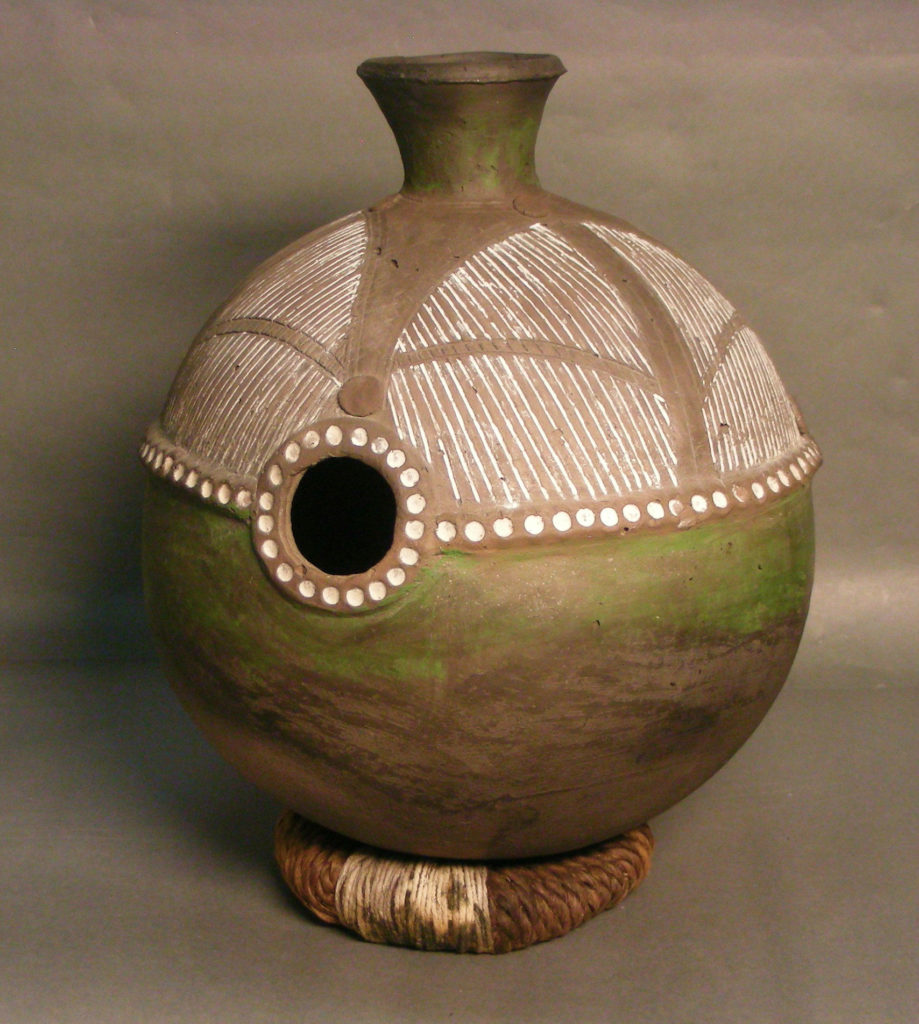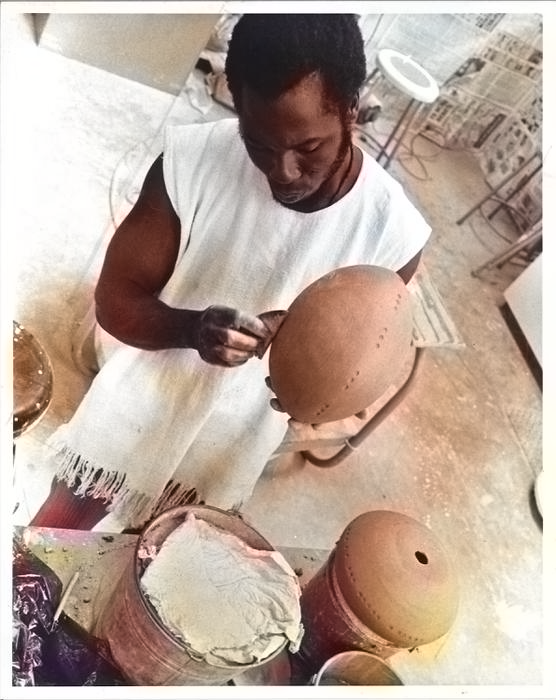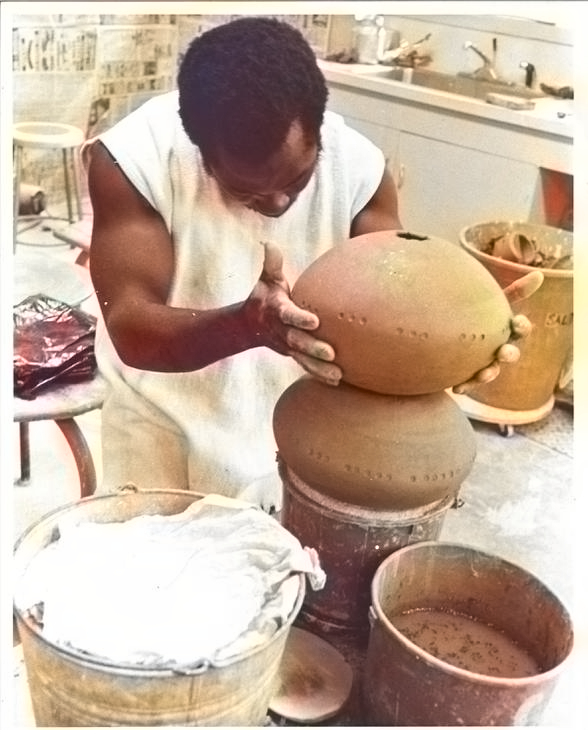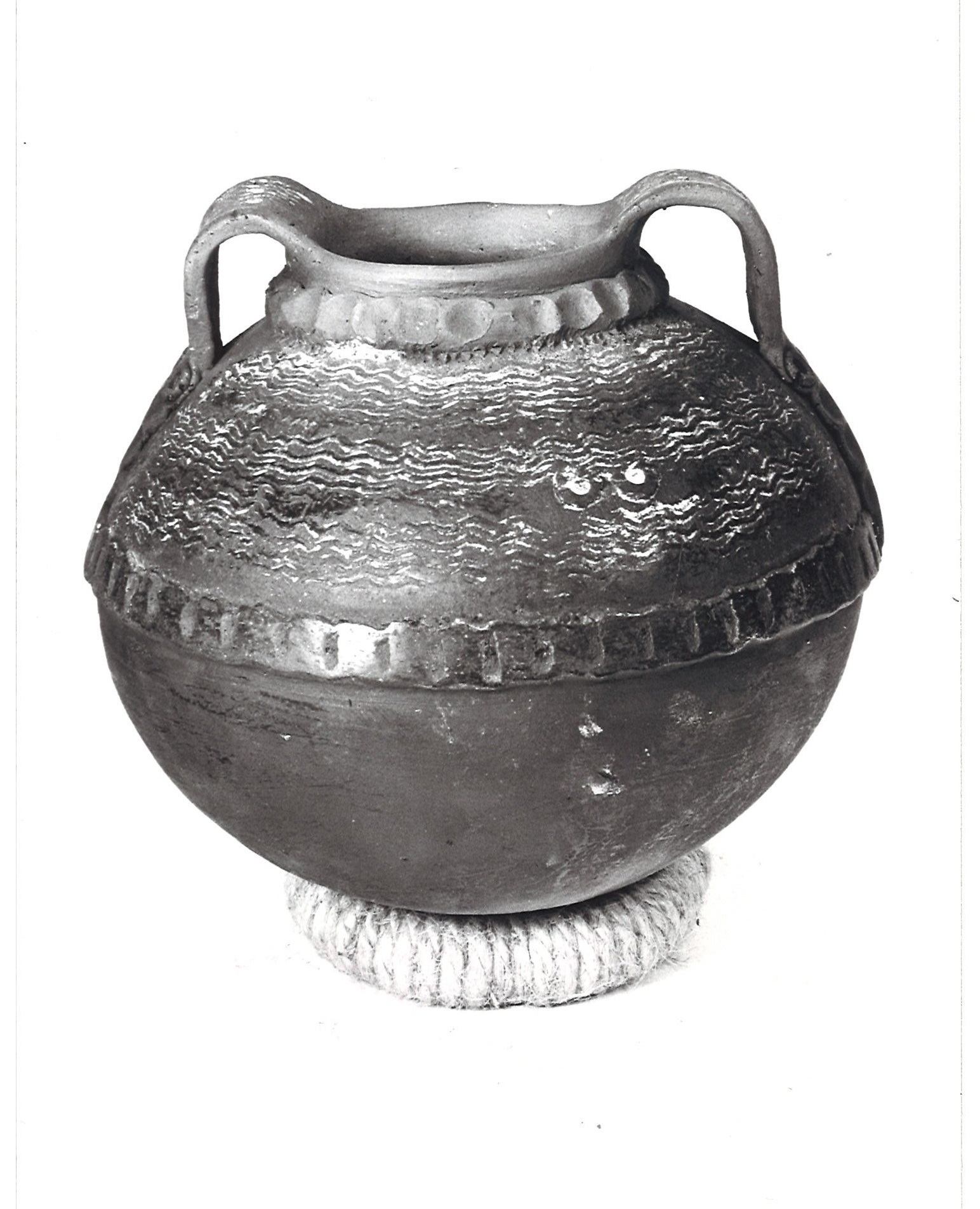Abbas Magaji Ahuwan

(b. 1947, Zaria, Nigeria) lives and works in Nigeria
Udu drum, 1975
clay, woven ring, 11.5 x 8.5 x 8.5 inches, 93.39.98
Abbas Magaji Ahuwan was first introduced to ceramics in his early teens when he began studying pottery at the Abjuda Pottery Center that was right across the street from his secondary school. At age twenty, Ahuwan traveled to England where he obtained a Higher School Certificate from the Abingdon School at Berkshire in 1968 and a second-class upper degree in ceramics from the West Surrey College of Art and Design in Farnham in 1972. He returned to Zaria, Nigeria, where he taught ceramics at Ahmadu Bello Univeristy until he moved to Knoxville, Tennessee, to get his Masters Degree in ceramics in 1976.
In the spring of 1971, under the auspices of the International Academy of Ceramics, the Tennessee Arts Commission pledged its support for the promotion and establishment of the U.S. International Ceramic Symposiums. The Symposium’s mission to help develop a worldwide network of support for ceramic art was achieved by bringing together top ceramic artists from around the world for a month-long sharing of ideas and creation of innovative ceramics.



Left and Center: Ahuwan builds a bulbous sculptural form on which he will place a wheat paste inlay design, photo is in the 1975 catalogue Right: Nigerian two handled jar, clay, 8″ high, possibly 93.39.297
Ahuwan represented Nigeria at the Second U.S. International Ceramic Symposium, which consisted of twelve artists from seven different countries, and was hosted in the summer of 1975 at the Arrowmont School of Crafts in Gatlinburg, TN. While at the Symposium, he worked on both Nigerian and Western vessel forms using the traditional hand building techniques he learned growing up in Nigeria combined with the Western ceramic techniques he learned in the U.S. For example, he created a muffin pan form that was influenced by Nigerian hand building, and he also made more traditional Nigerian forms that incorporated Westernized firing methods. In fact, Ahuwan developed a unique hybrid firing method that he called “afro-raku,” in which works are kiln fired and then removed and covered in sawdust and cow dung to create a smoky reduction environment that allows for a burnished black surface.
One particularly interesting work that Ahuwan created at the Symposium is an udu drum, which is a ceramic percussive instrument that origniated from the Igbo people of Nigeria. It can be played by tapping a hand against the surface or the front or top holes to produce a variety of pitches. This work has a surface pattern of incised white lines and sits atop a jute ring for stability and shock absorption during playing. Ahuwan is a significant innovator of the udu drum form, and has two of his variations on the traditional instrument form held in the permanent collection of the Metropolitan Museum of Art in New York City. He has taught the udu’s coiling and paddling construction method to many students, and it was at a ceramic workshop at Haystack Mountain School of Crafts in Maine where Ahuwan introduced the udu drum form to student Frank Giorgini. With Ahuwan’s blessing, Giorgini went on to develop a mass producible slip-cast udu with improved sound quality and durability, which became commercially available and spread the instrument to a wider audience.[1]
After the Symposium, Ahuwan continued to teach at Ahmadu Bello University, returning briefly to the U.S. to obtain a PhD in Educational Administration and Planning in 1981 from the University of North Texas in Denton. During his time as an educator at Ahmadu Bello University, he served as the head of the Department of Industrial Design from 1990-1993 and 2002-2006, and as the Dean of the Faculty of Environmental Design from 2004-2008.
Ahuwan is a member of the Society of Nigerian Artists, the Craft Potters Association, the Nigerian Society for Education through Art, the National Council for the Education of Ceramic Arts, and the Arts Council of the African Studies Association.[2] He is also a founding member of the Ceramic Researcher’s Associataion of Nigeria and served as its president from 2002-2011, and in 2017was honored by the association for his contributions to the development of modern ceramics throughout Nigeria.
[1] The Claytone Line. www.udu.com. Retrieved from http://www.udu.com/Udu_html/theclaytoneline.html
[2]Utor, Florence. Portrait. The Guardian Nigeria Newspaper. Dec. 2, 2017. Retrieved from https://guardian.ng/sunday-magazine/portrait/
Written by Aiden Layer, TN Arts Intern

